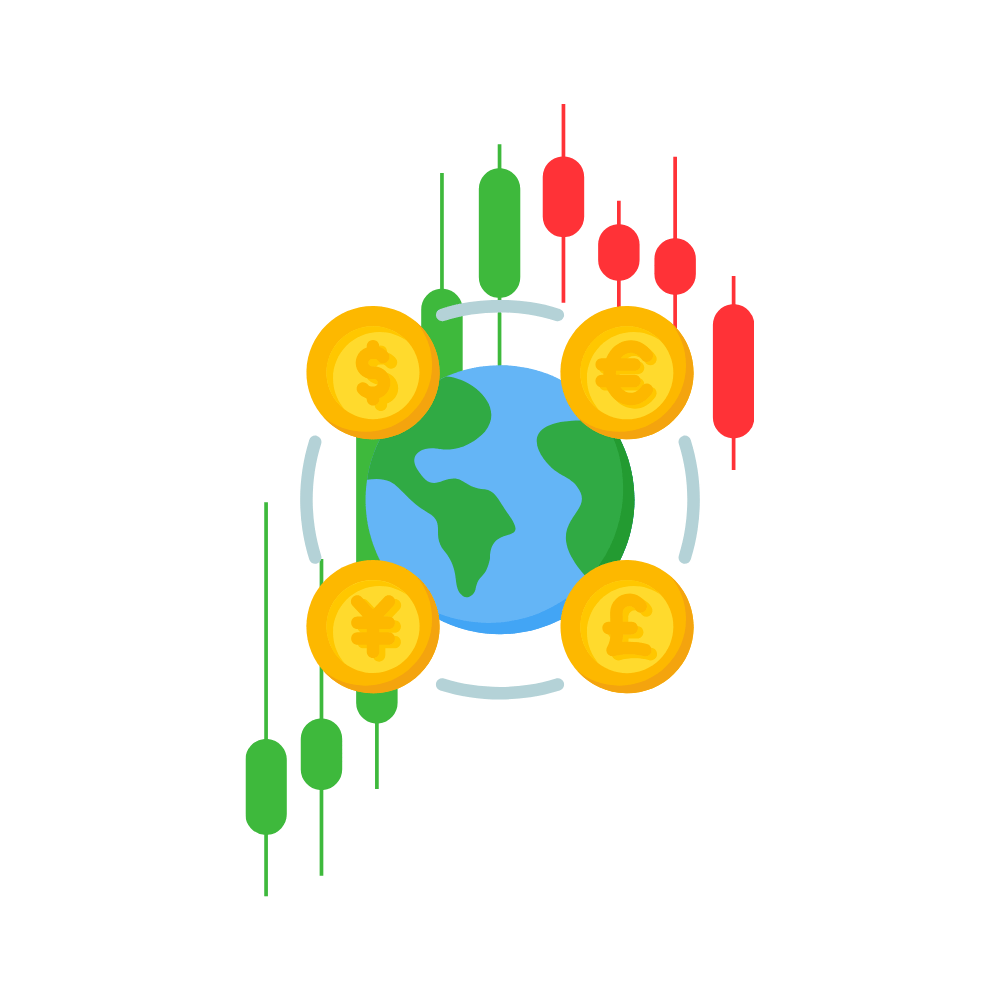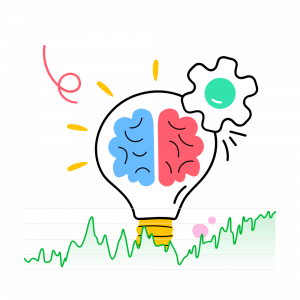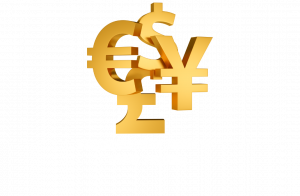Home / FOREX BROKERS

What is Forex Trading?
A Complete Guide to the World’s Largest Financial Market
Forex trading (short for Foreign Exchange Trading) is one of the most exciting and dynamic forms of investment. It involves buying and selling currencies in a global marketplace that operates 24 hours a day, five days a week.
As the world’s largest and most liquid financial market, the Forex market handles over $6 trillion in daily trading volume, making it a key avenue for both individual traders and institutional investors.
Whether you are new to the world of Forex or already have some experience, this guide will help you understand the basics of Forex trading, how the market operates, and how you can potentially profit from it.
1. What is Forex Trading?
Forex trading is the process of buying one currency while simultaneously selling another. In simple terms, it involves currency pairs like EUR/USD (Euro/US Dollar) or GBP/JPY (British Pound/Japanese Yen). The goal is to profit from the fluctuations in currency values based on market movements.
Forex trading is typically done through brokers or online trading platforms. Due to its high liquidity, it provides immense opportunities for traders to buy and sell currencies at favorable prices. Forex trading is decentralized, meaning there is no central exchange like the New York Stock Exchange (NYSE) for stocks.
2. How Does Forex Trading Work?
At its core, Forex trading involves currency pairs. These pairs consist of two currencies, where the first currency is the base currency, and the second is the quote currency. The value of a currency pair indicates how much of the quote currency is needed to buy one unit of the base currency.
Example:
In the EUR/USD pair:
- EUR is the base currency
- USD is the quote currency
- If the price of EUR/USD is 1.2000, it means 1 Euro is equivalent to 1.20 US Dollars.
Major currency pairs:
- EUR/USD – Euro/US Dollar
- GBP/USD – British Pound/US Dollar
- USD/JPY – US Dollar/Japanese Yen
- AUD/USD – Australian Dollar/US Dollar
3. Key Participants in the Forex Market
The Forex market is vast, with numerous participants that contribute to its liquidity and dynamics. These include:
- Banks: Large commercial and investment banks dominate Forex trading, providing liquidity and trading on behalf of their clients.
- Central Banks: They intervene in the market to stabilize or influence their national currency’s value, often through monetary policy actions.
- Hedge Funds and Financial Institutions: These entities engage in large-scale trading, often speculating on currency movements to generate returns.
- Retail Traders: Individual traders who participate in Forex trading through brokers or online platforms.
- Corporations: Companies that need to convert currencies for international trade or investment.
4. The Benefits of Forex Trading
There are several compelling reasons why people engage in Forex trading:
1. 24-Hour Market Access
The Forex market operates around the clock, five days a week. This gives traders flexibility to trade at any time, regardless of their location.
2. Liquidity
With over $6 trillion traded daily, the Forex market is the most liquid market in the world. This ensures that traders can enter and exit positions quickly without significant price slippage.
3. Low Transaction Costs
Forex brokers typically offer low spreads, making it cost-effective for traders to enter and exit positions. Many brokers also allow trading with low minimum deposits, making it accessible for new traders.
4. Leverage
Leverage in Forex trading allows traders to control larger positions with a smaller amount of capital. For example, with a leverage ratio of 50:1, a trader can control $50,000 with a $1,000 investment.
5. Diverse Trading Opportunities
Forex markets provide a wide range of pairs to trade, including majors, minors, and exotic currencies. This allows traders to diversify their portfolios and find new opportunities.
A global brokerage offering low-cost Forex trading and access to a wide variety of global markets for experienced traders.
A leading, highly regulated global broker offering competitive spreads and advanced trading platforms for all experience levels.
A popular social trading platform where users can copy successful traders and engage in a variety of asset classes.
A well-established broker known for low spreads, excellent customer support, and robust trading tools for all traders.
A versatile broker providing a wide range of account options, high leverage, and top-tier educational resources.
An Australian-based broker offering tight spreads and fast execution, ideal for scalpers and active traders.
A globally recognized broker known for low minimum deposits, high leverage, and a range of trading tools and resources.
A well-regulated Forex broker offering advanced tools, high-quality market analysis, and a wide range of account types.
A professional-grade broker with a wide range of markets, providing powerful platforms and in-depth research tools.
A user-friendly CFD trading platform that offers Forex trading with tight spreads and a simple, intuitive interface.
5. Key Concepts You Need to Know
Before starting your journey in Forex trading, it’s crucial to understand some key concepts:
1. Pips
A pip (percentage in point) is the smallest price movement in a currency pair. Most pairs move in increments of 0.0001(for example, EUR/USD moving from 1.2000 to 1.2001).
2. Spreads
The spread is the difference between the bid price (what buyers are willing to pay) and the ask price (what sellers are asking). A narrower spread usually means lower trading costs.
3. Leverage and Margin
Leverage allows traders to control a large position with a small amount of capital. Margin is the required deposit to open a leveraged position.
4. Stop Loss and Take Profit
These are orders placed to automatically close a trade at a certain profit or loss level, helping manage risk.
6. How to Start Forex Trading: A Step-by-Step Guide
Starting with Forex trading can be straightforward if you follow a few essential steps:
Step 1: Choose a Reliable Forex Broker
Select a regulated Forex broker with competitive spreads, user-friendly platforms (like MT4 or MT5), and excellent customer support.
Step 2: Open a Trading Account
Sign up with your broker, providing necessary documents (ID verification, proof of address) to open a live or demo account.
Step 3: Deposit Funds
Deposit an amount you are comfortable trading with, keeping in mind the minimum deposit requirements and risk management strategies.
Step 4: Practice on a Demo Account
Start with a demo account to practice trading strategies without risking real money. Most brokers offer demo accounts with virtual funds.
Step 5: Start Trading
Once you feel confident, switch to a live account and begin trading with real money. Monitor your trades carefully and always manage your risks.
7. Risks and Challenges in Forex Trading
While Forex trading offers significant opportunities, it also comes with substantial risks:
- Market Volatility: Currency markets can be highly volatile, and sudden price movements can lead to losses.
- Leverage Risk: While leverage can amplify profits, it can also magnify losses if not used cautiously.
- Psychological Pressure: Forex trading requires discipline and emotional control, as making impulsive decisions can lead to significant losses.
8. Conclusion
Forex trading offers exciting opportunities for traders worldwide.
With its high liquidity, low transaction costs, and 24-hour accessibility, the Forex market is an attractive choice for individuals looking to diversify their investment portfolios.
However, like any form of trading, Forex involves risks that require knowledge, skill, and a solid strategy.
Understanding the basics, such as currency pairs, leverage, spreads, and risk management, is essential before diving into real money trading.
If you’re just starting, it’s advisable to practice with a demo account and use small amounts of capital until you’re comfortable navigating the complexities of the Forex market.

Author,
leading expert at FBX
Robert has been working in financial market valuation and analysis since 2008.
Years of experience and deep immersion in the topic give us every reason to trust his expertise.












